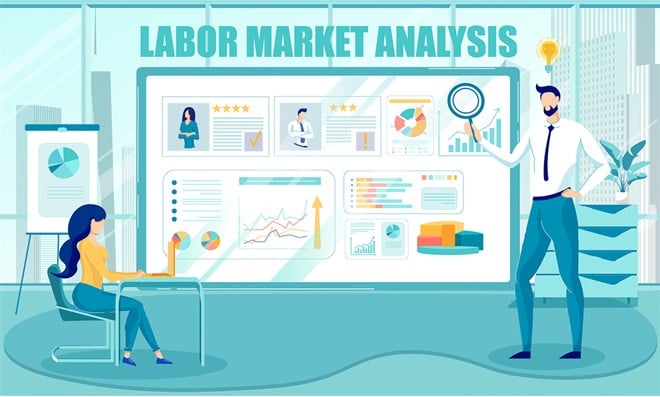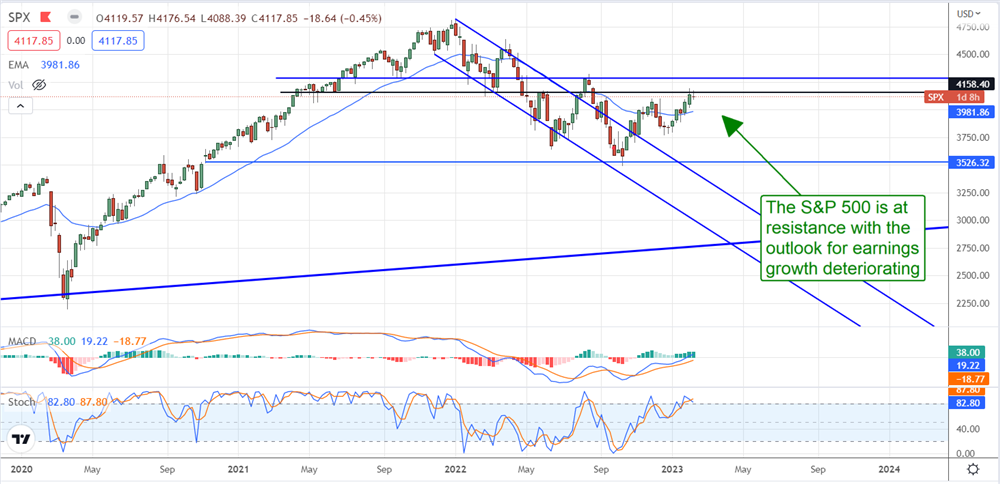
The January non-farm payrolls report was much stronger than expected, and the market cheered. The takeaway, at first glance, is that the economy is doing well while inflation is cooling, but this is a dubious take on the economy.
The labor data arguably is little more than a coincident indicator of the economy and does little to improve the outlook. Within the data, including other data sets related to the labor market, there are signs that the labor market is shifting and not for the better.
Layoffs, Pay Attention To Layoffs
The tech sector has been in the news for layoffs. Companies from Meta Platforms (NASDAQ: META) to Google (NASDAQ: GOOG) have announced thousands in layoffs, and that figure continues to grow. The bad news is that layoffs are not centered to the tech industry, and they are at historically high levels. The Challenger, Gray & Christmas report on January employment trends shows layoffs surged by 102,943 for the month, up 136% month-to-month, 440% versus last year and the highest January since 2009.
The tech sector is at the heart of these layoffs, but the retail and construction sectors were heavily impacted, and hiring plans slowed too. In terms of leading, lagging or coincident, this data suggests that the good times are ending and the bad times have just begun. With hiring plans below plans for layoffs, the outlook for net job creation is negative.
And the hiring data from ADP only compounds this issue. While the ADP figure was much lower than the NFP, the 2 are often out of alignment. What is important is the trend in data for both, which is upward and has employment at historically high levels for the US, well above the 2008 levels. So, while layoffs are on the rise, employment is still strong, so one offsets the other, right?
Wrong.
The ADP, in particular, shows that jobs are shifting from higher-paying industries to leisure and hospitality. The leisure & hospitality industry has been plagued by under-employment for years, so this is good news for hotels, amusement parks and restaurant chains. Still, these jobs are at the lower end of the pay range for most people and don’t make up the difference in earnings or spending power.
Disney (NYSE: DIS) is the latest to make headlines for layoffs. Under the resumed direction of Bob Iger, the company plans to reorganize into 3 operating units and lay off about 7,000 people, which is about 4% of the total workforce. Many of the layoffs will be in the content production and streaming segments, which will be merged and streamlined.
And What About The Fed?
The FOMC has 2 mandates, employment and inflation, and employment doesn’t seem to be a problem for them. The strength in hiring is leading to sustained wage inflation, and that is underpinning broader economic inflation. Wage inflation is slowing, which is good, and suggests they’ve done their work which is good news.
The bad news is that broader economic inflation is still trending well above 4.0% and more than double the Fed’s target at the core level. This means they can be expected to keep rates high, if not rising, for the foreseeable future, and the news from that corner is that they’ve not done enough to be “certain” inflation is tamed.
The real takeaway from all of this is the outlook for S&P 500 (NYSEARCA: SPY) earnings continues to decline under inflation, rising interest rates and now a shifting outlook for labor. The Fed may be able to cease hiking soon because of that shifting outlook. The question that needs to be answered is how long past that point will it take for the economic outlook to bottom, and the expectations for S&P 500 earnings improvement can creep back into the market.?
It’s taken the FOMC 2 years to get the economy to where it is, and it will surely take another year or 2 to get it where it needs to be. A recession? An earnings recession is already here. If that spills into the labor market, and it looks like it is, a real recession is just around the corner.















